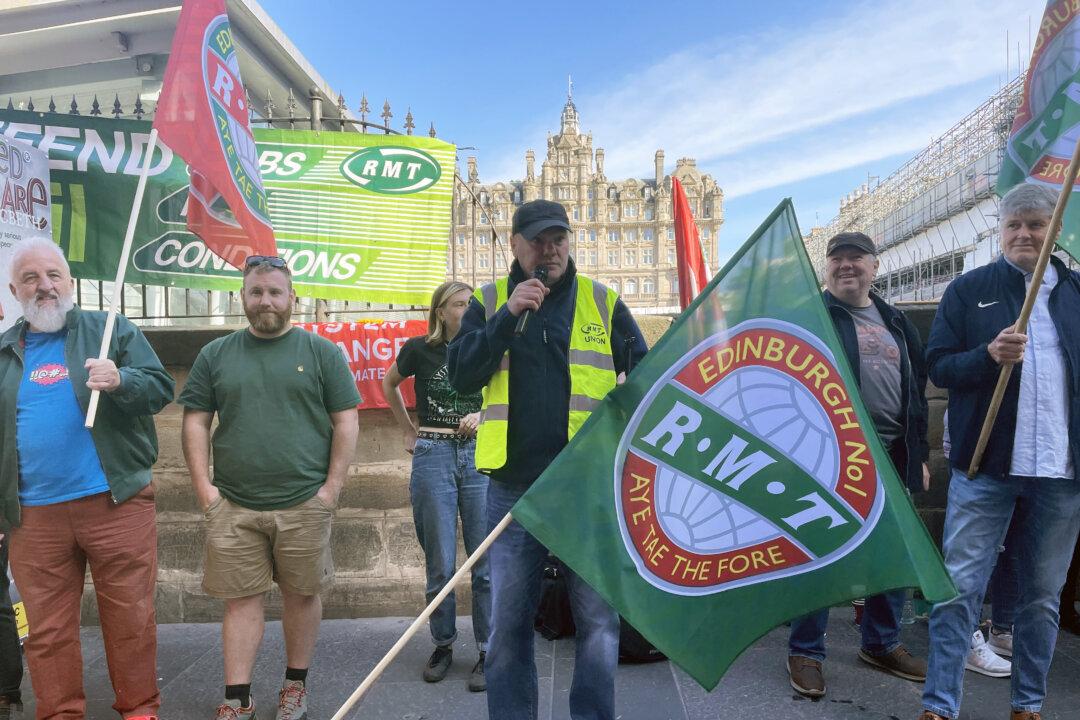A British rail union has said it will stage a series of 48-hour strikes during the festive season in December and January in a long-running dispute over jobs, pay, and conditions.
More than 40,000 members of the Rail, Maritime, and Transport (RMT) union across Network Rail and 14 train operating companies will strike on Dec. 13, 14, 16, and 17 and on Jan. 3, 4, 6, and 7.





